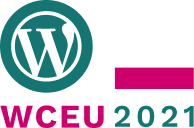Category: Talk
All code is legacy code
There is a common meme in development about how the legacy application shouldn’t be touched, it works, but no one quite knows how or why. We’re going to take a look at ensuring what you leave when you move on from a team, company or leave the industry, is something others would like to inherit instead of the stereotypical legacy application, and how your code, projects and secrets are the legacy you leave behind
Building great experiences in the new editor
Starting out building blocks or experiences for the WordPress block editor can be a bit daunting. Where do I start? Custom blocks, block patterns or just styling core blocks.
In this Talk I will walk through the different options and share the benefits and downsides of each while talking about overall good practices for building great editorial experiences.
4 case studies: Making self-hosted CRM work for your client portfolio
WordPress has advanced to the point you can drop your SaaS CRM and use WordPress plugins as your CRM. We’ve saved clients thousands of dollars a year adopting WordPress plugins into their marketing tech stacks.
In this training we’ll share with you 4 real client scenarios (GDPR compliant) who have adopted self-hosted CRM solutions to run their business.
Takeaway: You will learn 4 funnels you could use and deploy right away with free plugins found in the repo.
This training is suitable for freelancers, front end developers, agencies and professionals who offer WordPress as a Service.
- Case Study #1:
Dr. Rouzati offering Botox training
Lead to Phone Call funnel - Case Study #2:
Brain Therapy Clinic offering concusion treatments
Online Quiz to Consult funnel - Case Study #3:
McGuire Financial offering financial services
Lead to a Webinar funnel - Case Study #4:
Dermatology clinic that requires a systems & process funnel (pre-screening)
Accessing APIs using OAuth on the Federated (WordPress) Web
Over the past years, APIs have grown to be the engine of the web, with OAuth 2.0 being the standard for enabling secure cross-platform connections to such APIs on behalf of a user. However, setting up OAuth requires extensive technical knowledge of the protocol and the platform. For a distributed ecosystem such as WordPress these are hurdles almost impossible to overcome.
This talk explains how we solved this problem for the Site Kit plugin and various Google APIs. It explores alternate approaches to enable a secure, seamless, and scalable connection between a WordPress site and third-party services to access user data in a way that can be leveraged by other plugins and services as well.
Master your productivity today
During this jam-packed session you will understand how to:
- Prioritize with confidence
- Get back time in your day
- Complete more projects in less time
- Focus with precision
- Repeat with every task, goal, and project
Invisible CMS
Create your own Invisible CMS, and grow your business!
Invisible CMS is all about leveraging the power of WordPress without marketing WordPress.
You’ll learn to understand that customers don’t focus on a specific CMS, but solutions. And that developers need to provide more than just a custom theme.
Reimagine what you are solving, integrate 3rd party technologies, and sell a solution to grow.
WooCommerce data hub
As Woocommerce numbers grow it’s time you can do more about your client.
Imagine your client’s model depends on different partners that submit the data through their websites.
Is using the WooCommerce endpoint for creating orders enough?
How about cloning the website by displaying a different theme for a different domain but using the same WooCommerce data?
In this talk, I’ll explain how we managed to create a data hub for orders using WooCommerce and receiving payments from 8 different domains, and orders from 6 more partner sites.
Some of the payment receiving sites have their own payment processor or use different templates for both the site and email notifications.
Enhancing the accessibility of a plugin, a use case
Web forms should work. No doubt about that. And they should work for all visitors, regardless of device or ability.
Gravity Forms set as goal: to ensure that all forms created with Gravity Forms can be WCAG 2.1 AA compliant. It has been quite an eventful journey and Morgan and Rian are happy to share this with you.
Accessibility always was a focus point of Gravity Forms but, with the fast development of changing accessibility requirements and legislation worldwide, more specialised expertise was needed. Therefore Rian Rietveld, web accessibility specialist from Level Level joined the team.
In this talk we show you the steps we took to test and improve the accessibility of the forms build with Gravity Forms. Like doing an initial audit, training the developers and designers, finding good solutions for issues without breaking existing forms, helping the Q&A team with extra test tools and writing documentation.
This talk is for everyone that wants to enhance the accessibility of a web project and wants to learn the way to implement this in their workflow.
